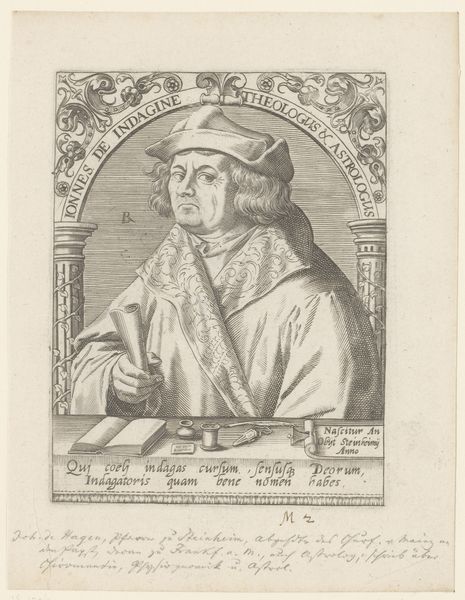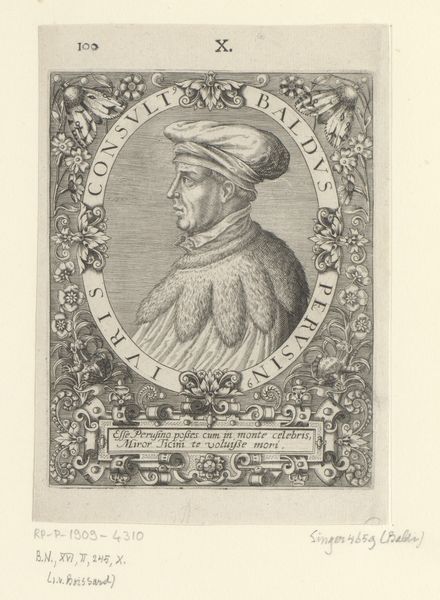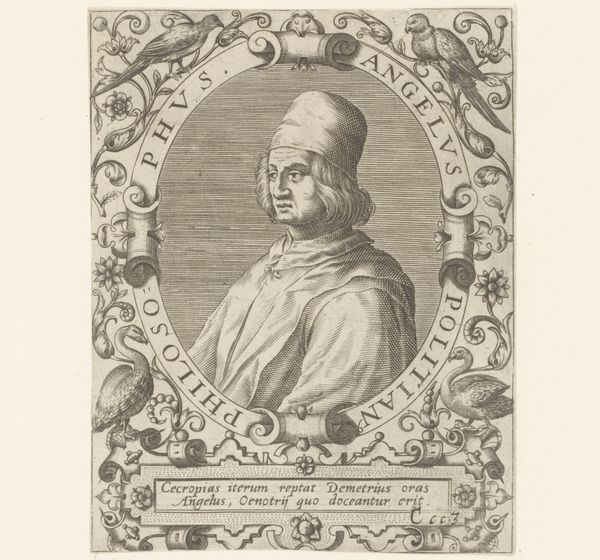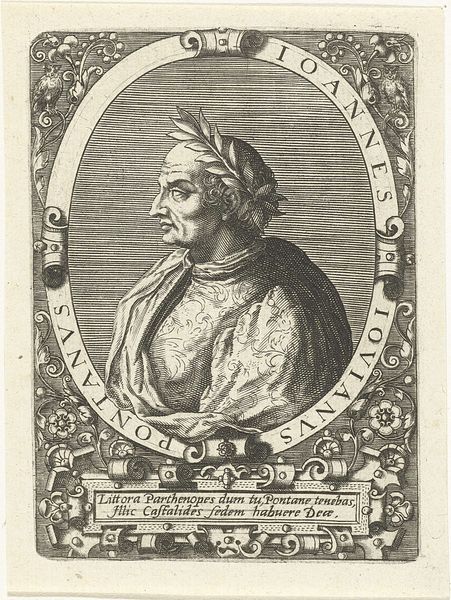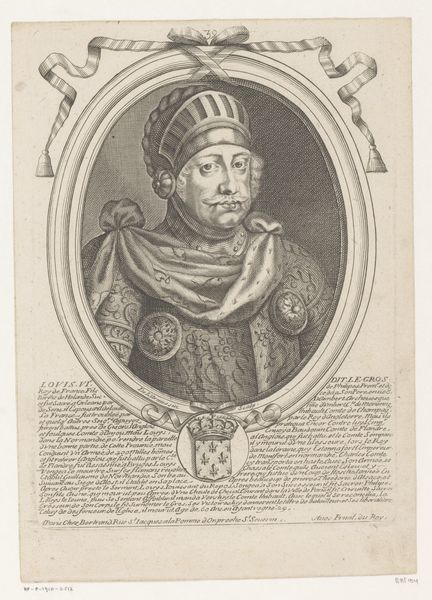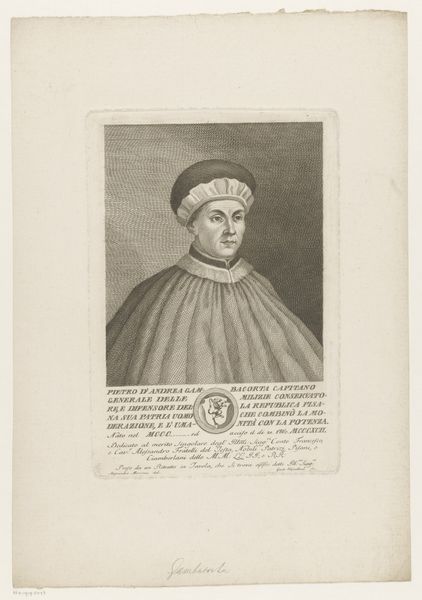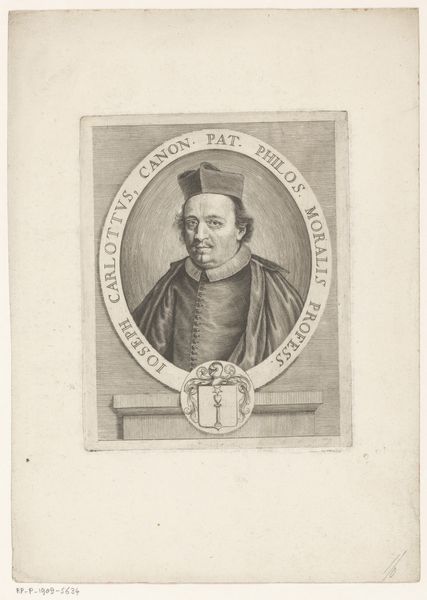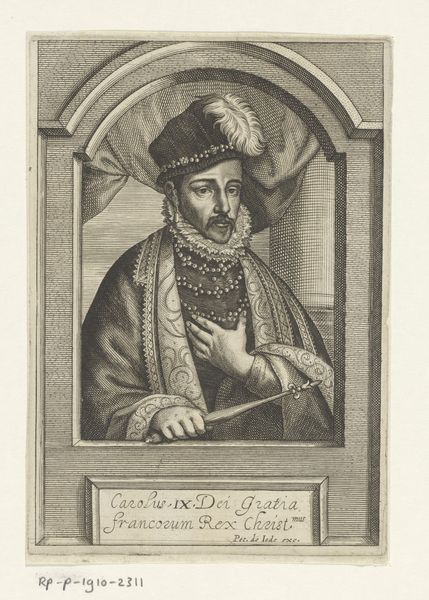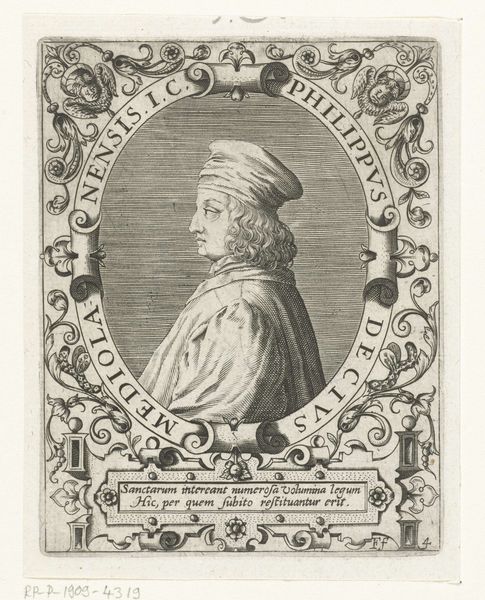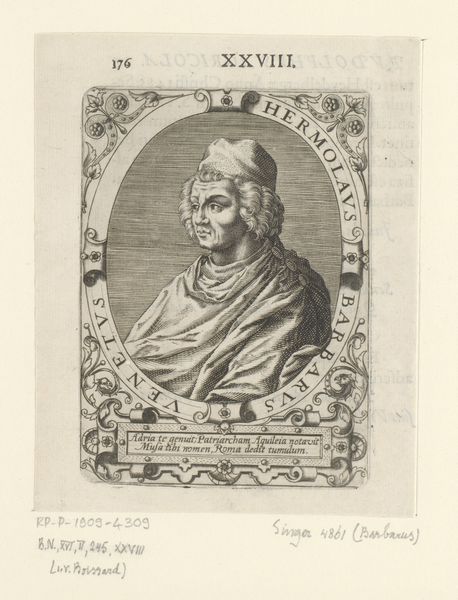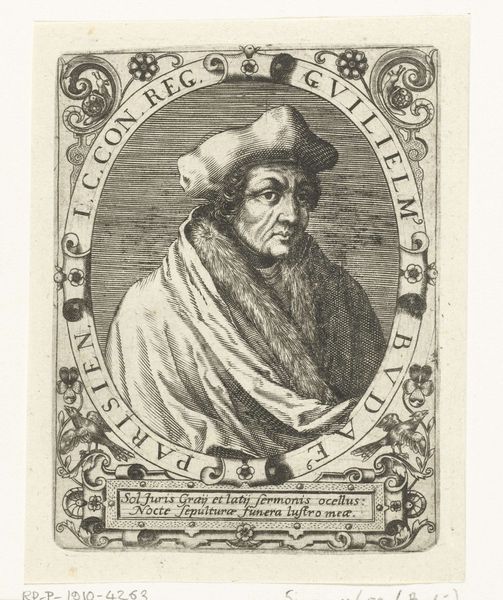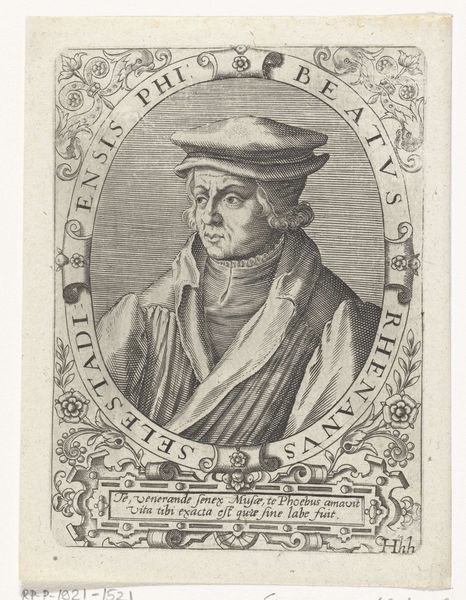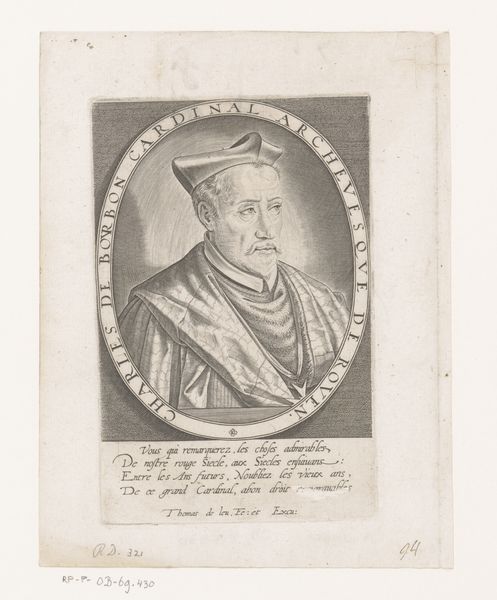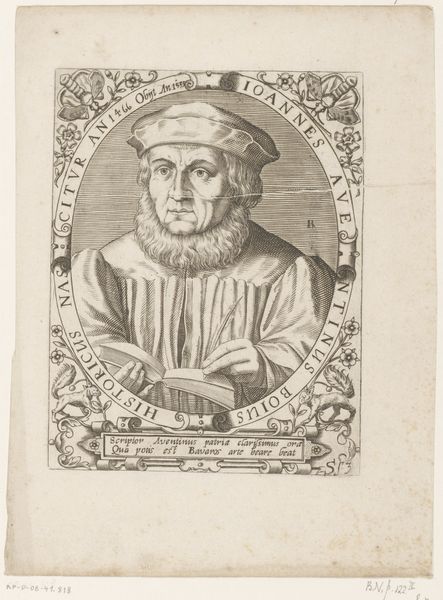
engraving
#
portrait
#
old engraving style
#
history-painting
#
italian-renaissance
#
engraving
Dimensions: height 140 mm, width 109 mm
Copyright: Rijks Museum: Open Domain
Editor: Here we have a piece entitled "Portret van Niccolò Machiavelli" made somewhere between 1597 and 1599. It's an engraving by Robert Boissard and resides at the Rijksmuseum. The expression on Machiavelli’s face…he looks so severe and thoughtful! What catches your eye in this portrait? Curator: Oh, I love this engraving! You know, when I look at this, I don't just see a historical figure, I see a riddle wrapped in Renaissance clothing. It's like Boissard is asking us, "Do you dare to look beyond the words and grapple with the complex legacy of the man himself?" Look closely at the way the light and shadow play across his face. Do you think the artist is trying to tell us something about his character? Editor: Maybe...The shadowing around his eyes makes him seem almost weary, as if carrying the weight of his political philosophy. Curator: Exactly! And consider the medium itself. Engraving, with its precise lines, lends an air of authority, but it’s still an interpretation, a filtered reality. Does that influence our perception, do you think? Is it a faithful likeness, or a carefully constructed image? Editor: That's a great point. The artist clearly made conscious choices about how to portray him. It almost makes me wonder what Machiavelli would think of this interpretation of himself. Curator: Ah, now you're thinking like an art historian! Maybe he'd approve of the shrewdness, the almost cynical edge captured in the lines. Or maybe he'd argue it misses the bigger picture. Art is a mirror, but sometimes, it reflects back a distorted image. I feel like the frame feels both neoclassical and somehow menacing with its heaviness. Editor: That’s fascinating. I hadn't really thought about the framing of the engraving that way, but I see it now. Thank you! Curator: My pleasure! I'm walking away wondering about Boissard. What were *his* motivations when he produced this artwork? It makes one ponder history and perspective and interpretation all at once.
Comments
No comments
Be the first to comment and join the conversation on the ultimate creative platform.
